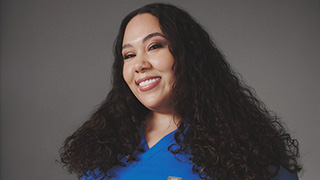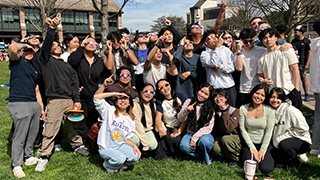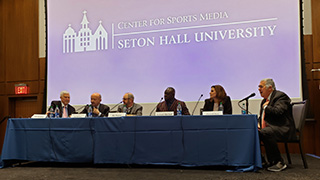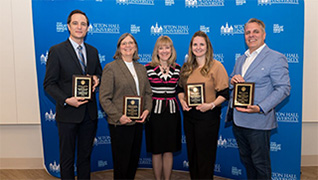Esteemed Author Speaks at Deacon Convocation
Friday, September 9, 2016
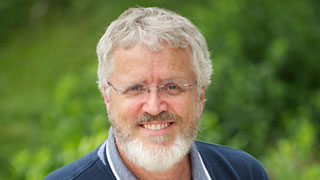
When the
Center for Diaconal Formation at Immaculate Conception Seminary
School of Theology hosts its
Permanent Diaconate Convocation on November 5,
Deacon James Keating, Ph.D., will be one of three speakers taking center stage. Deacon Keating is an accomplished
author and director of theological formation in the Institute for Priestly Formation
at Creighton University. He will deliver two presentations during the event: one just
to deacons and candidates, and the other to all attendees.
Deacon Keating recently took the time to talk to us about his own diaconal journey,
his achievements and what it was like to present at the Vatican.
This year marks your 15th anniversary as a deacon. What first inspired you to pursue
the diaconate?
I was attracted to the ministry of the Word, which a deacon is immersed in. Teaching
and preaching about the truths of Catholicism held a great attraction to me, and it
has over these years been a true gift to me and hopefully to the people to whom I
minister.
What is the most important thing you've learned throughout your years since your ordination?
God is faithful. Even when we are wobbly in our faith or attracted more to "this age"
as St. Paul says, rather than to Christ, He remains with us and for us, calling to
us and attracting us back to His truth and beauty.
His commitment to us is truly the secret to ministry well lived.

Deacon Keating received blessings from Pope Francis when he presented at the Vatican during the Year of Mercy.
You were invited to give a presentation this year at the Vatican for the celebration
of the diaconate during the Year of Mercy. What was that like?
To have received this honor was truly a deep joy, and to be able to share it with
my wife Marianne was a direct gift from the Spirit, as it was our 30th wedding anniversary.
The presentation itself was delivered at St. Mary Basilica near the Pantheon. It is
the church where St. Catherine of Siena is buried. As I delivered the address behind
me, over my right shoulder was a sculpture by Michaelangelo. Not your ordinary speaking
venue! Meeting the Pope was a joy, and he was very gracious to bless our marriage
and my ministry.
You have lectured in seminaries all over the country. Does any one presentation stand
out in your mind, and if so, why?
What stands out most is the unique age we are living in. Many seminaries are adding
rooms and building wings to accommodate the unexpected upturn in vocations to the
diocesan priesthood. I also continue to marvel at the quality of the men and their
love of orthodox church teaching. The church is in rough waters in the Western culture
because of political ideologies that do not respect religious liberty or the basic
truths of respect for life and the meaning of marriage. God has and is preparing a
future presbyterate to stand against these attacks on reason and faith. The seminarians
and faculties stand out in my mind; they are true gifts to the church and culture.
You have accomplished quite a bit throughout your career as, among other titles, an
author, editor, lecturer and professor. Of what achievement are you most proud, and
why?
Professionally, I draw most satisfaction from the more hidden work I do as spiritual
director to priests. It is a privilege to accompany these men into deeper intimacy
with the God they love. Further, I am grateful that such scholars as Matthew Levering
and his journal
Nova et Vetera have judged my written research on clerical formation to find a place in his exemplary
publication. Sharing ideas on clerical formation, its present state and needed imaginative
development is a great joy to me. And, of course, being invited to the Vatican to
speak on the diaconate was a capstone of sorts on my written work on Holy Orders.
What does it mean to you to be speaking at the Diaconate Convocation at Immaculate
Conception Seminary?
It is always a joy to be with deacons and sense their desire to learn more about the
mystery of this great vocation that the Lord is sharing with us. I am hoping that
my time at the Seminary will facilitate an even deeper appropriation of Christ's own
servant heart in the men who come to participate in this event.


